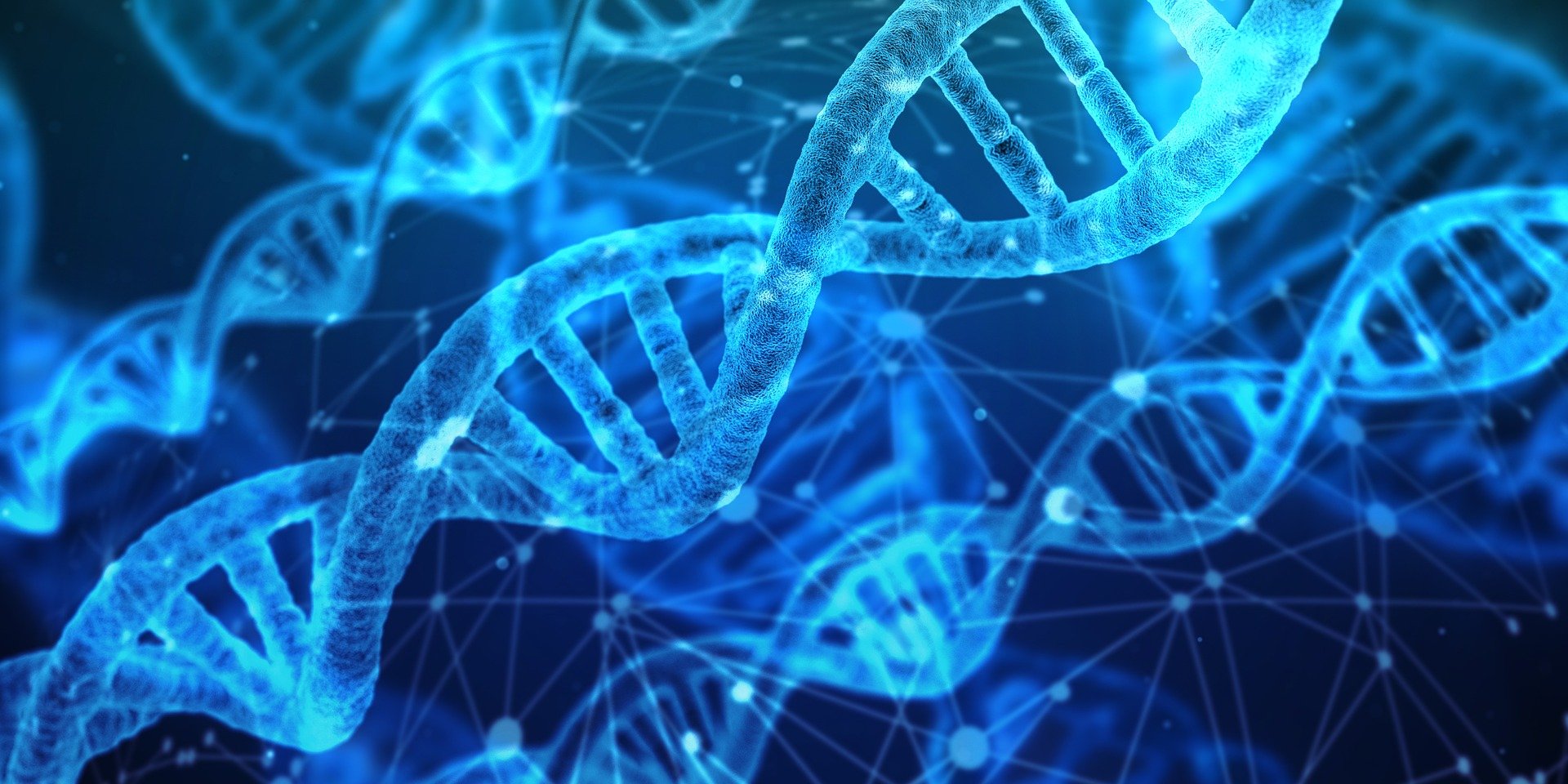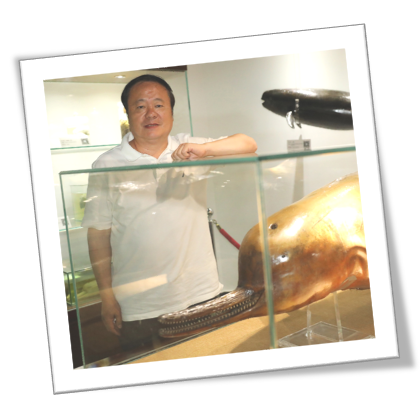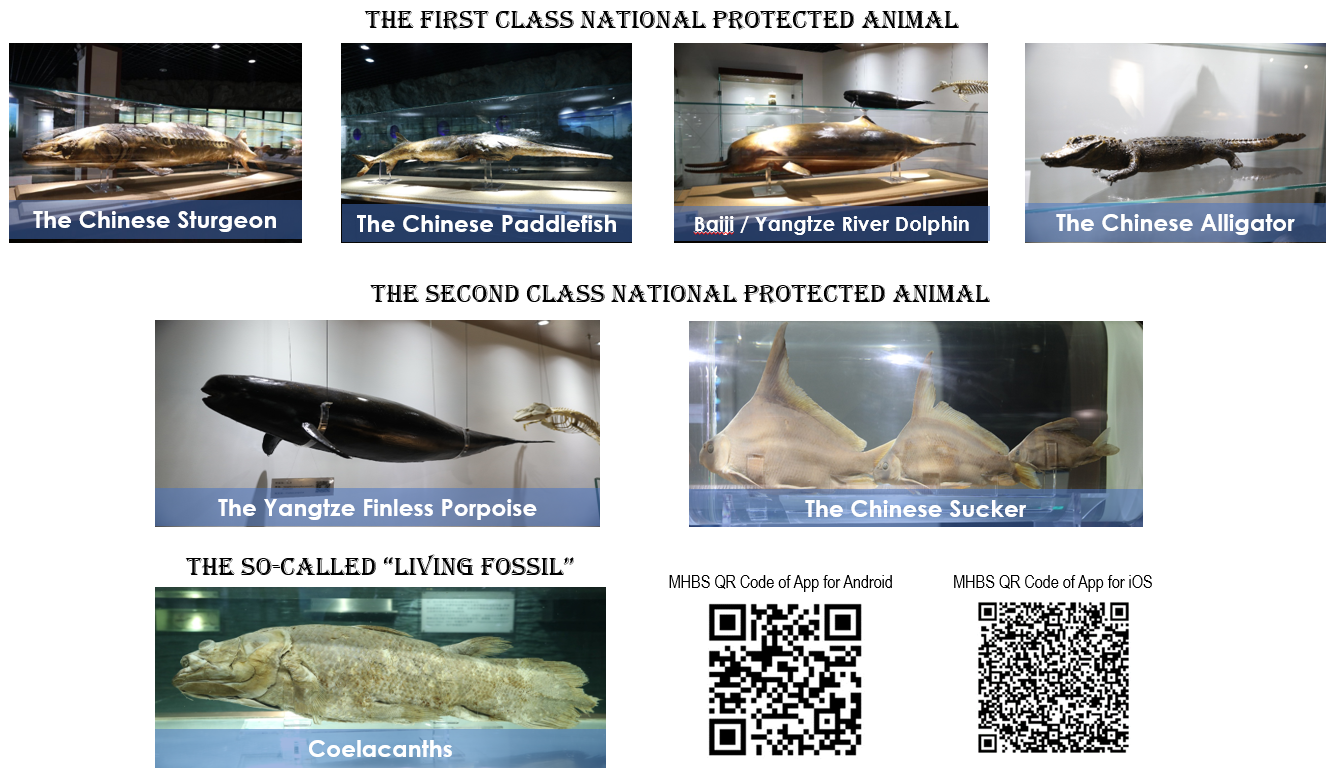
Research
Museum of Hydrobiological Sciences

Director:Zhang Xianfeng, PhD
The Museum of Hydrobiological Sciences (MHBS) has been going through the same 90 years development with its mother institution, the Institute of Hydrobiology, Chinese Academy of Sciences (IHB/CAS).

At present, MHBS houses 1,500 square meters areas of store rooms and collects 400,000 specimens, which include over 300,000 specimens belonging to more than 1,000 species of freshwater fishes; 260 type specimens of fishes; more than 600 species of fishes from 34 foreign countries/regions; more than 20,000 algae specimens; and some aquatic invertebrate specimens. Among the fish collections, the most distinctive are the complete collections of Cypriniformes and Cyprinidae, which reflect the characteristics of the fish fauna in East Asia and have extensive influence worldwide.
Also, MHBS houses 1000 square meters of exhibition hall and displays some extinct species, such as the Chinese paddlefish (Psephurus gladius) and Baiji (Lipotes vexillifer); some national protected animals such as the Chinese sturgeon (Acipenser sinensis), the Chinese alligator (Alligator sinensis), the Yangtze finless porpoise (Neophocaena asiaeorientalis asiaeorientalis), and the Chinese sucker (Myxocyprinus asiaticu), etc.; and the so-called “living fossil” animal coelacanth (Branchiostoma belcheri).
Besides, in order to link the museum and the public, MHBS sets up some science classes and occasional lectures for public, offers free Wi-Fi for public to scan two-dimensional code to gain more knowledge about the exhibited specimens, and develops official We-chat Account, smart mobile phone Apps, official website, and online museum for public. In sum, MHBS has become a center for the conservation, display, research, and science communication of aquatic living resources.
The MHBS has been fully integrated into the National Animal Museum, a national science and technology resource sharing service platform supported by the Ministry of Science and Technology and the Ministry of Finance of China. In the next step, MHBS will be continuing to increase the collection of specimens, complete specimen digitization, and become the internationally first-class aquatic specimen resources platform.
Official Website of MHBS: Click here!
